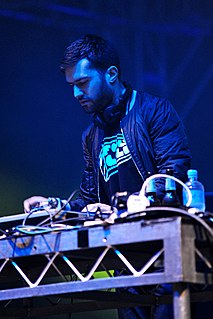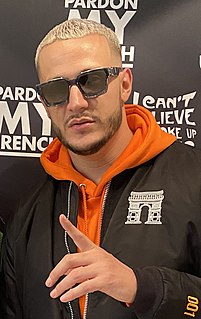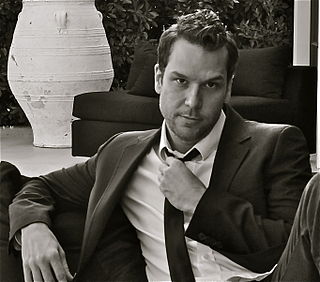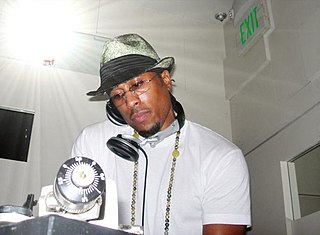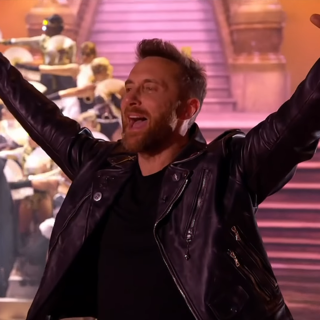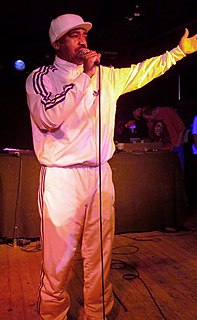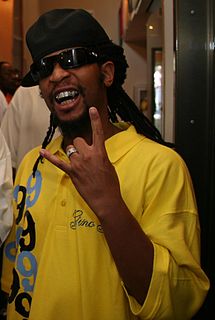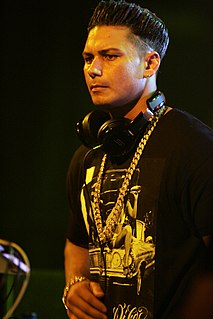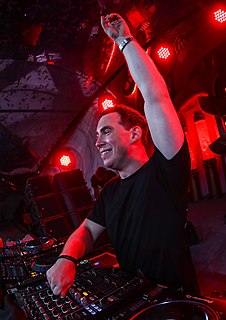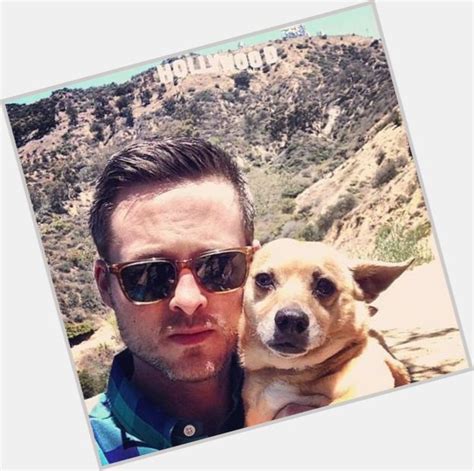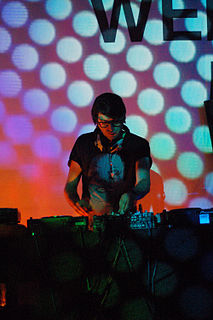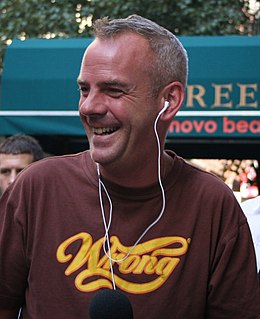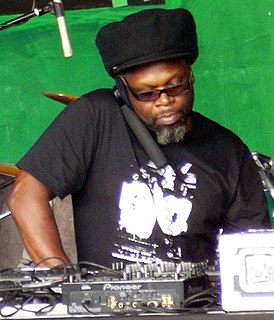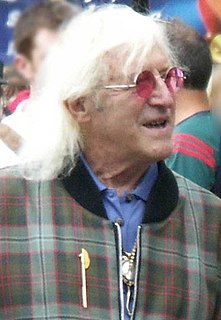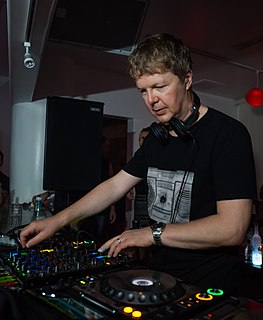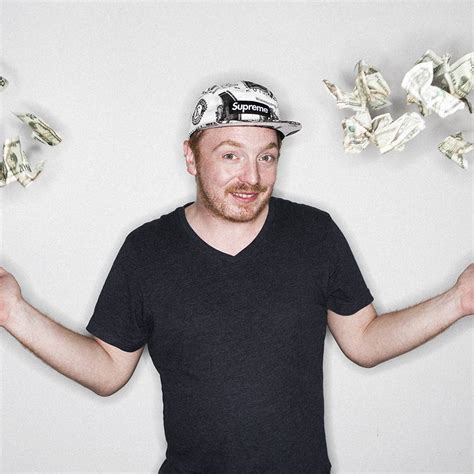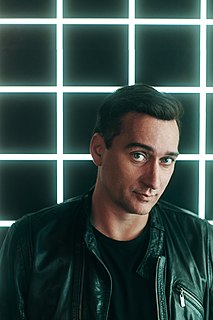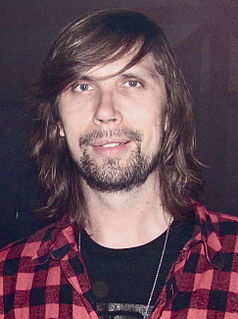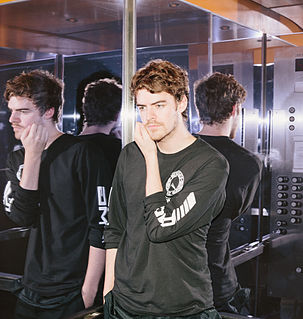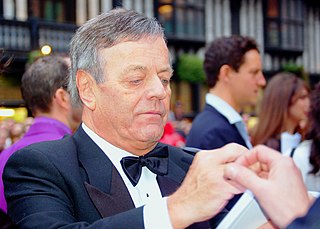A Quote by A-Trak
I'm one of the few DJs who uses turntables. I'm the only DJ that's scratching.
Quote Topics
Related Quotes
In terms of what has been happening recently, there have been, I think, some really interesting new instruments that have come out that sort of show me the direction of the future. Korg has introduced the - they've had a whole series now of these things called Kaoss Pads. They're wonderful because they do get your muscles working again. And what DJs do, of course, with their DJ turntables now, the CD turntables, which have pitch change and speed change and everything else. They're doing something that I think is interestingly physical.
The DJ still has the relationship with the people, I believe. I don't know to call the DJ 'the ambassadors' or what, but we still are connecting the dots, getting the good stuff and passing it on to the people. DJs still have relevance, even with the technology that elevates the DJ beyond being a selector.
I started in '88 to play House music, it was a huge revolution for me. I went to London and I saw a DJ on stage and that was crazy at the time. I was one of the really respected and famous DJs in Paris, but they would never show me. I was hidden. A DJ on stage and people dancing and facing the DJ, looking at him? I was like 'wow!'
When I'm representing my music live I think of it very much in a rock band sense. When I first started doing festivals in the 90s there really weren't other DJs playing the stages I was playing. So I felt I was being afforded an opportunity to kind of make a statement about what DJ music can be live. In the 90s, if you were a DJ you were in the dance tent, and you were playing house music and techno music. There was no such thing as a DJ - a solo DJ - on a stage, after a rock band and before another rock band: that just didn't happen.
